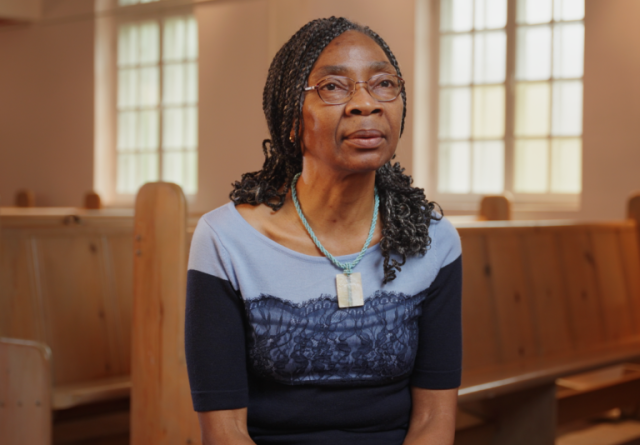What can each of us do to deconstruct thoughts and behaviours that are harmful?

Learning
A writer of the gospel calls out to us.
In Mark 2:1‒12, we read about how Jesus has returned to Capernaum. When people hear of this, crowds gather. While he is teaching, a paralyzed man is lowered on a stretcher through the roof to the very feet of Jesus. The four men who did this were hoping that Jesus would relieve the man of his pain. So many thronged the house that opening the roof was their only hope. Impressed by the men’s ingenuity in circumventing the crowds, Jesus immediately acknowledged their faith and forgave the man for his sins. Teachers of the Law saw this as blasphemy. Jesus looked on them with compassion, wondering at the reason for their reaction. He attempted to lead them out of their ignorance.
The tone used to correct what the specialists of the law were thinking is significant. They were the keepers of religious heritage. Delicately but firmly, Jesus discredits the “truth” underpinning their attitude toward the people experiencing pain all around them.
How encouraging this is in the face of various forms of racist practices that can cause pain in the bodies and souls of Indigenous and racialized peoples!
When hope for healing meets with indifference—or worse, insensitivity rooted in misplaced perspectives that have evolved over centuries—a process of raising awareness and informing is one of the only responses. Following the example of Jesus, Christian leaders should take actions to raise awareness and provide education geared to the type of resistance met within specific institutions and communities. We also need to work towards deconstructing thoughts and behaviours that are harmful.
The Gospel of Mark provides encouragement in this struggle: You are not alone! The work is long and hard, but the seed will grow and produce the beautiful fruit of empathy, compassion, and acceptance, which are the cornerstones of inclusivity.
In the meantime, however, synergy is required. Educational actions, and healing from pain, must also focus on people who have experienced racial discrimination and internalized racism.
If we are to address the phenomena of racism and discrimination globally, it will be necessary to collectively work towards healing from pain and racial trauma and to deconstruct thoughts and behaviours that are harmful. In this way, we might be able to implement actions that inform and encourage personal development in rebuilding inner lives and challenge broader racist practices as a whole.
Faith Reflection
Listen carefully to Jesus: If you think that my forgiving sins is blasphemous, the same applies to enabling this man to rise up and walk, as his friends were hoping I would do. Has God not been shown as the One Who Heals? Both forms of salvation come from the same source. This is the truth: As the one who all seek for healing, I am the Son of God. Know then that on earth I have the authority to forgive sins, just as I have the authority to heal paralysis. And this I shall do despite your misconceptions. Your ways have resulted in a lack of awareness and made you indifferent to suffering.
Jesus reminds us that God is the One Who Heals—who accompanies us in our pain and who extends healing. Jesus also reminds us of the promise of liberation, and that pain and suffering are not the end of God’s story in our lives.
What good news for us!
We are reminded that we are never alone as we engage this long-term liberating work of racial justice today, beyond these 40 Days of Engagement on Anti-Racism, and on all days.
God guides and accompanies us with strategies, strength, and wisdom to challenge injustice and to engage with hope over indifference.
Living It Out
At the end of the day, engaged reflection and action are needed. As a disciple of Christ striving to follow in the way of Jesus, what should my contribution be to help deconstruct erroneous thoughts, misperceptions, prejudice, and other realities that produce and maintain behaviours that are harmful to myself or others? What can I bring to rebuilding the inner life of someone dealing with pain? How might I be courageous and determined to do this work in the long term?
—Albertine Chokoté Naoué (she/her) is a trained (PhD) lay biblical theologian. She is a member of the governing board of the La Table des ministères en français and Treasurer of the Executive Office. Originally from Cameroon, Albertine lives in Toronto, where she is the founder and director of the non-profit organization Connexion Verte. This NPO works to promote the most equitable inclusion possible into their new living environment for members of Black Francophone communities of African descent already living in Ontario or new to the province.
A version of this article originally appeared as a blog for Black History Month, February 2022.